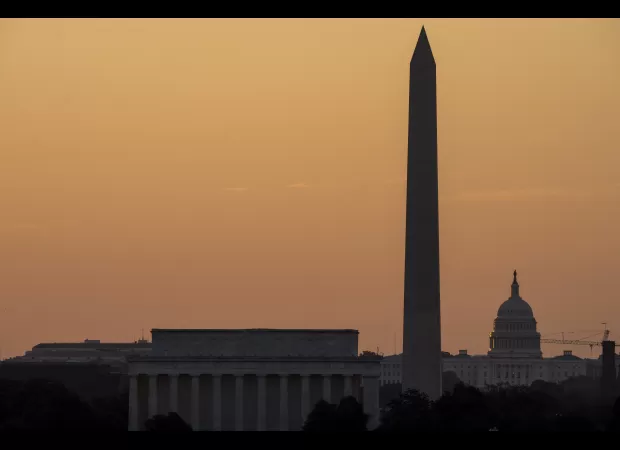The US is still experiencing a heat wave with no signs of cooling down.
High temperatures are causing major disturbance for millions of people nationwide.

As the week came to an end, a relentless heat wave continued to scorch most of the United States. Forecasters warned that record-breaking temperatures would persist through the weekend, offering little respite for those in affected areas.
The Midwest was expected to experience the steamiest conditions on Friday, with heat indexes soaring past 100 degrees Fahrenheit in parts of Ohio and Indiana. However, the extreme heat was not limited to this region alone. Excessive heat and heat warnings were also issued across the northeast, the mid-Atlantic, and some western states.
Tragically, Idaho officials announced that two people in their 60s had died due to heat-related causes, marking the state's first heat-related deaths of the year. While no further information about the victims was released, health officials urged residents to take caution in the sweltering conditions.
Millions of people across the country have had their lives disrupted by the scorching temperatures. In Michigan, severe storms knocked out power for thousands of suburban Detroit residents, leaving them to suffer through the heat wave. Utility crews from multiple states worked tirelessly to restore power, but as of Friday afternoon, about 12,000 homes and businesses were still without power.
The vice president of distribution operations for DTE Energy, Brian Calka, reported that they were working around the clock to get the power back on for all customers by late Friday or early Saturday. However, with crew members wearing heavy protective gear in the intense heat, they were taking frequent breaks to avoid exhaustion.
One Michigan resident, Jody DeRusha, shared her experience of losing power and having to throw out all the food in her fridge. She and her daughter sought refuge in their basement, where the temperature was cooler than their stifling home.
In Ohio, even outdoor activities like kayaking had to be limited due to the extreme heat. Chad Brennan, who operates a kayaking business, explained that any physical activity in such hot temperatures can be exhausting.
According to scientists at World Weather Attribution, this month's record-breaking temperatures were 35 times more likely and 2.5 degrees F hotter due to human-caused climate change. Last year, the U.S. experienced the most heat waves since 1936, resulting in over 2,300 deaths.
But the heat wave wasn't the only weather-related issue causing problems. In northern Minnesota, heavy rain led to flooding, causing significant damage and road closures. Governor Tim Walz visited the affected areas and encouraged people to document the damage to help secure federal assistance.
In South Dakota, campers who had gathered for a canceled race at Huset's Speedway were rescued by boat as floodwaters continued to rise. Officials warned against driving through flooded streets and urged people to stay safe.
With the heat wave expected to continue, some events have been postponed or rescheduled. The "Blazing Paddles Paddlefest" in Cleveland was called off due to the forecasted mid-90s temperatures. However, there is some hope for relief as temperatures are expected to drop back to normal in the Great Lakes region on Sunday.
As the country endures this intense heat wave, it is a reminder of the impact of climate change and the importance of taking precautions to keep ourselves and our communities safe.
1 Views






